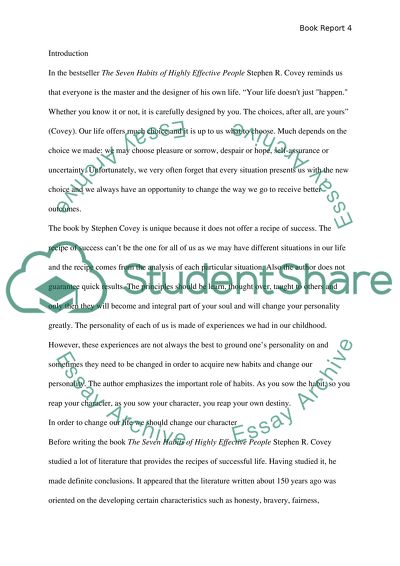Cite this document
(“The 7 habits of Highly Effective People by Stephen R. Covey Book Report/Review”, n.d.)
Retrieved from https://studentshare.org/english/1404427-the
Retrieved from https://studentshare.org/english/1404427-the
(The 7 Habits of Highly Effective People by Stephen R. Covey Book Report/Review)
https://studentshare.org/english/1404427-the.
https://studentshare.org/english/1404427-the.
“The 7 Habits of Highly Effective People by Stephen R. Covey Book Report/Review”, n.d. https://studentshare.org/english/1404427-the.


